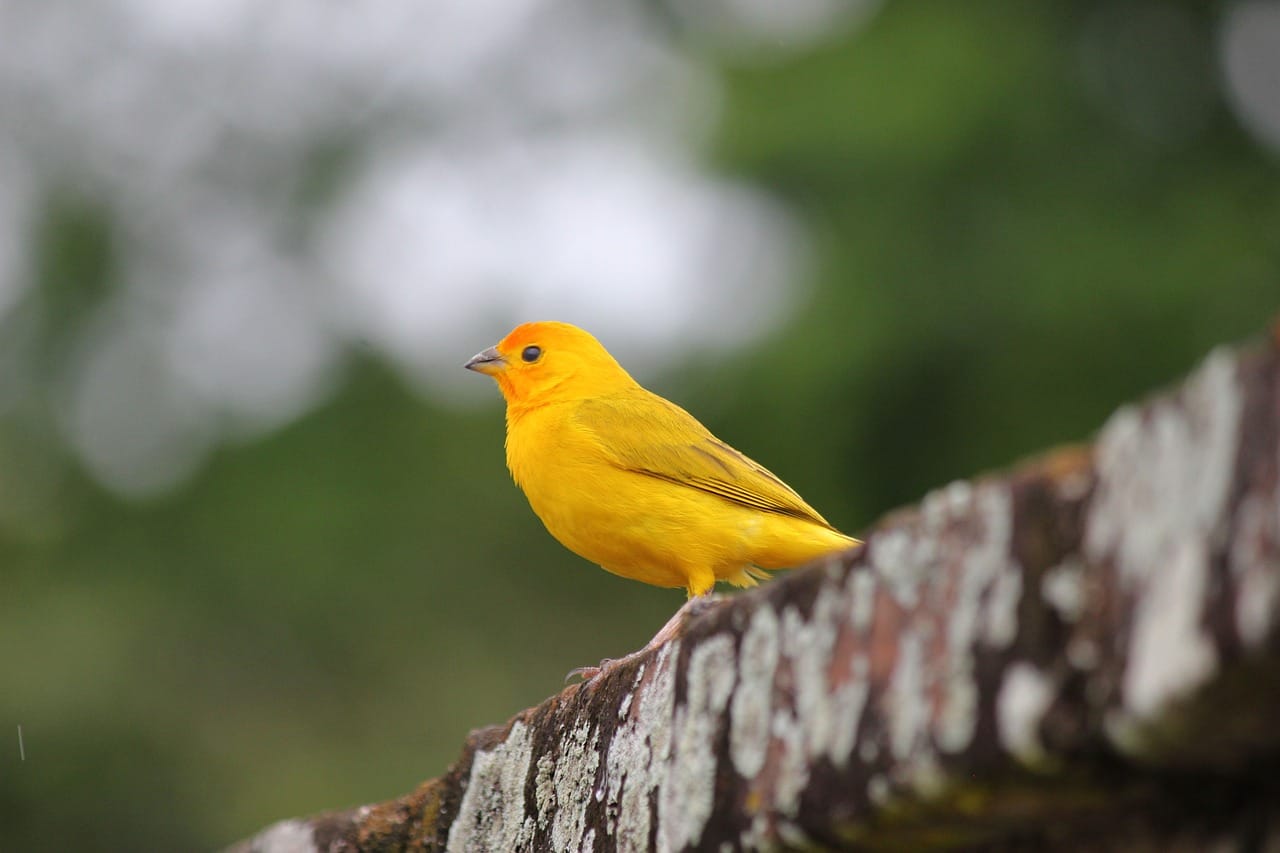The Canary, a beloved songbird, has captivated bird enthusiasts for centuries with its melodic tunes and radiant appearance. Originating from the Canary Islands, these birds are a symbol of cheerfulness and charm, thriving as low-maintenance pets that bring joy through their songs and beauty.
Key Features of the Canary
- Beautiful Singing Abilities
- Male Canaries are celebrated for their melodious singing, offering a wide range of tones and trills.
- Each Canary’s song is unique, with some birds trained to develop even more intricate melodies.
- Their vocal prowess is not just pleasant but also soothing, making them ideal companions for tranquil environments.
- Vibrant Colors
- Canaries come in an array of colors, including yellow, orange, green, white, and red.
- Selective breeding has enhanced their visual appeal, producing strikingly vibrant individuals.
- Size and Appearance
- Canaries are small birds, measuring about 4–5 inches in length.
- Their lightweight build and graceful movements add to their delicate charm.
Caring for Canaries
- Dietary Requirements
- A balanced diet ensures their health and energy for singing:
- Seed Mixes: Specialized Canary seed blends with millet and other small seeds.
- Fresh Foods: Leafy greens (spinach, kale) and fruits (apple slices, berries) as supplements.
- Egg Food: Provides essential protein, especially during molting or breeding seasons.
- Cuttlebone: Supplies calcium for strong bones and beaks.
- A balanced diet ensures their health and energy for singing:
- Housing and Environment
- Canaries are solitary birds that thrive in spacious cages (minimum 18x18x18 inches).
- Place the cage in a well-lit, draft-free location away from direct sunlight.
- Provide perches of varying sizes and materials for exercise and foot health.
- Exercise and Enrichment
- Allow your Canary to fly outside its cage in a safe, enclosed space regularly.
- Introduce toys like mirrors or swings to keep them mentally stimulated.
- Health and Maintenance
- Canaries are generally hardy but should be monitored for signs of illness, such as lethargy or dull plumage.
- Keep the cage clean and ensure fresh water and food are provided daily.
- Avoid exposing them to smoke, aerosols, or other strong odors, as their respiratory systems are sensitive.
Why Canaries Are Popular Pets
- Musical Companions
- Their melodious songs bring life to any space, making them a popular choice for music lovers.
- Low Maintenance
- Canaries are independent and easy to care for, requiring minimal interaction.
- Visual Appeal
- Their vibrant colors and graceful presence add aesthetic charm to homes and aviaries.
- Compact and Adaptable
- Ideal for small living spaces, Canaries adjust well to domestic environments.
Challenges to Consider
- Limited Interaction: Canaries are not typically hand-tame and prefer to observe their owners from a distance.
- Solo Living: While they enjoy listening to other Canaries, they do not require or often prefer cage mates.
- Sensitivity: Their delicate respiratory systems require a clean, safe environment.
Why Canaries Are Popular in the USA
The Canary’s unmatched singing ability and vibrant appearance have made them a beloved choice among American bird enthusiasts. Their ease of care and delightful personality make them accessible to both beginners and experienced bird owners.
Is a Canary Right for You?
If you’re seeking a beautiful and melodious bird that requires minimal handling, the Canary is an ideal pet. Whether as a solo companion or part of an aviary, these cheerful birds will brighten your home with their songs and stunning colors.
Canary : A Symbol of Beauty and Vitality
Canaries are beloved not only for their vibrant plumage and melodic songs but also for their resilience and symbolism in well-being. Interestingly, the term “canary” has been adopted by organizations focused on health and prevention, such as the Canary Foundation, a leading non-profit dedicated to advancing early cancer detection research. Just as these charming birds are known for their early warning in mines, the foundation aims to identify cancer in its earliest stages, promoting healthier outcomes.
Learn more about Canaries and other exotic birds in our Birds section.

